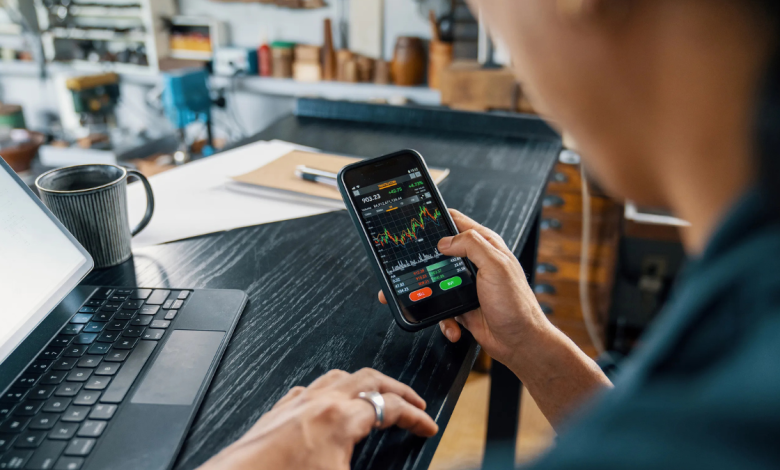Balancing Trading and Everyday Life

In the fast-paced world of trading, many South Africans are drawn to the promise of financial independence and flexible schedules. However, without discipline and boundaries, this flexibility can quickly lead to stress and burnout. Balancing trading and everyday life is essential to ensure that your financial goals don’t come at the expense of your mental health, relationships, or physical well-being.
Whether you’re into forex, crypto, or stocks, learning how to integrate trading into your daily life withoutt it taking over iss key to long-term success. Here are practical tips to help you manage both your trading journey and your personal responsibilities.
ALSO READ: How to Avoid Emotional Betting and Trading Mistakes
1. Create a Structured Trading Routine
One of the biggest mistakes new traders make is diving into the market without a plan. A trading routine ensures you don’t let the markets consume your entire day. Whether you’re a full-time trader or part-time investor, set fixed hours that suit your lifestyle and daily commitments.
According to Investopedia, having a structured trading plan reduces emotional decision-making and promotes consistency.
✅ Tip: Treat trading like a job—clock in, follow your plan, and clock out.
2. Leverage Technology to Save Time
Automating certain aspects of trading can help free up your time for other responsibilities. Tools like MetaTrader and TradingView offer mobile alerts and allow you to set predefinedconditions for trades.
Apps like Myfxbook for forex or CoinMarketCap for crypto tracking help you monitor the markets without staying glued to your screen all day.
3. Set Financial and Emotional Boundaries
It’s crucial to separate your trading from your emotional state. Many traders fall into the trap of revenge trading or risking money meant for daily expenses.
According to Investopedia, emotional trading can lead to devastating losses and unhealthy behaviors.
✅ Tip: Use stop-losses andand daily risk limits, and never trade with money you can’t afford to lose.
4. Take Breaks to Recharge
The fear of missing out (FOMO) is real in trading. But constantly watching the markets can lead to burnout. Make time for rest, just like you would in any career.
Mental health organizations like SADAG encourage breaks from high-stress environments to avoid anxiety and emotional exhaustion.
✅ Tip: Use weekends to disconnect. Schedule time outdoors or with loved ones to recharge.
5. Communicate with Family and Friends
Balancing trading and everyday life also means managing your relationships. Make it clear when you’re “at work” tradingand when you’re free to spend time with others.
In South African culture, family and social life are highly valued. According to BusinessTech, personal connections and time with loved ones remain a top priority for many locals.
✅ Tip: Involve your family in understanding what you do and why certain times are “market hours.”
6. Learn Consistently but Avoid Overloading
Continuous learning is important, but information overload can create confusion. Dedicate specific time each week to upskill—don’t binge-watch every trading video you find.
Use trusted sources such as:
- Moneyweb – South African financial news
- DailyFX – Global forex analysis
- Bloomberg Africa – Global markets and economic trends
✅ Tip: Focus on one strategy or concept at a time, and apply it before moving on.
7. Track Both Your Trading and Lifestyle Habits
Don’t just track profits and losses. Keep tabs on how trading affects your sleep, mood, relationships, and physical health.
Journaling tools like Notion or Daylio help traders log their mental states, sleep quality, and routines alongside their trade results.
✅ Tip: A good day in the market should never cost you a bad day in life.
8. Join a Trading Community for Support
Trading can be isolating—especially when things go wrong. Local trading communities can offer support, mentorship, and learning opportunities.
Explore:
- Just One Lap Aree is a South African resource on investing and trading.
- Forex South Africa Facebook Group – Connect with fellow traders
- Traders Corner – Simon Brown’s insights for SA retail traders
✅ Tip: Learn from others’ mistakes and share your own experiences to grow faster.
9. Prioritize Your Physical and Mental Health
Successful trading requires a clear mind and a healthy body. Make self-care a daily non-negotiable.
As highlighted by Health For Mzansi, there’s a growing awareness in South Africa about the need for a balanced lifestyle that supports both mental and financial wellness.
✅ Tip: Eat well, exercise daily, sleep consistently, and don’t ignore stress signs.
CHECK OUT: Best Practices for Safe Online Trading
Maintaining a balance between trading and everyday life requires continuous effort and mindfulness. By structuring your routine, setting clear boundaries, leveraging technology, and nurturing your mental and physical well-being, you create a sustainable environment where both your trading career and personal life can thrive. Embracing these practices helps ensure that your pursuit of financial freedom complements rather than compromises your overall happiness and health.



